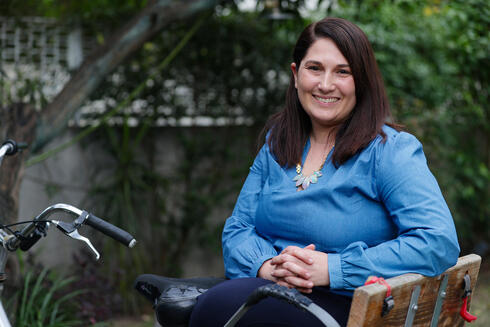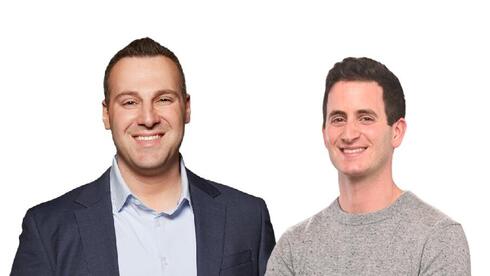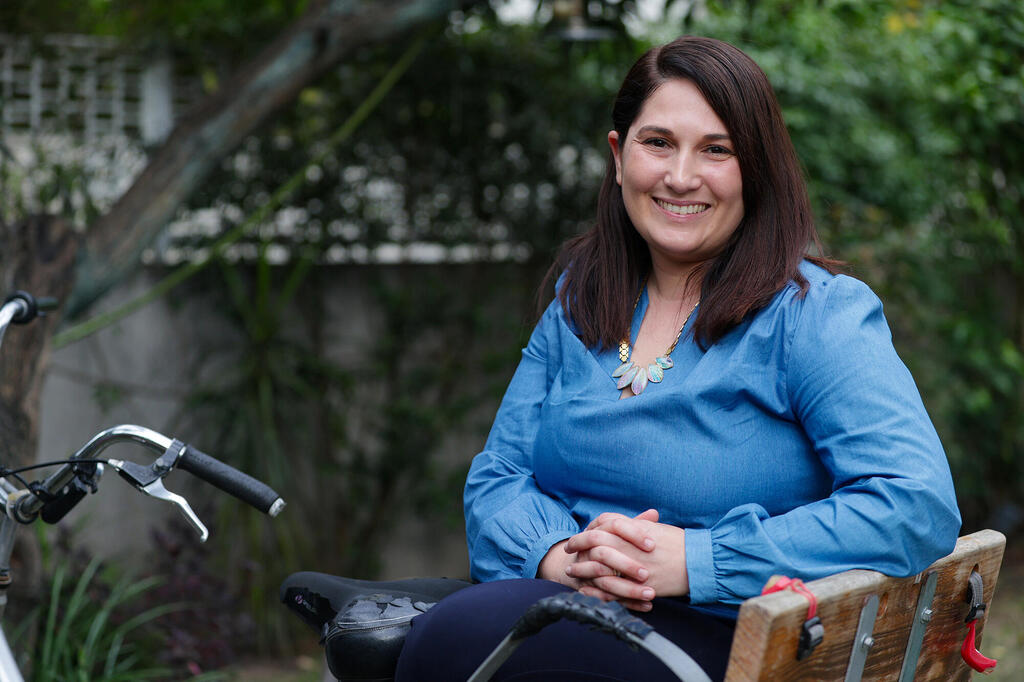
"There are many, many opportunities in the energy sector, and every woman can contribute to it in her own way"
The director of the community Women in Energy, Roni Elhalal Givon, decided that it was time to break through the male-dominated energy sector and established a community to encourage women to join one of the most important and influential fields in the world
Whoever tries to find gender diversity in Israel’s energy sector will quickly discover that it's essentially male-dominated. The grim statistics speak for themselves: women constitute less than 5% of senior managers in the energy industry, and hardly hold any CEO positions in the public sector. Israel Natural Gas Lines (INGL) is the only governmental company in the energy sector led by a woman, Aya Avidor.
Upon realizing that she was nearly the only woman in the room at an industry forum, Roni Elhalal Givon decided it was time to break into the male-dominated field and bring women into one of the most important and influential industries in the world. She founded the Women in Energy community in Israel, which is part of the Ignite the Spark community, with the goal of encouraging women to enter the energy sector. Two years after its establishment, the Ministry of Energy also began to support it.
Elhalal Givon, an environmental engineer by training, serves as head of partnerships at the ESIL - Environmental Sustainability Innovation Lab, a joint venture by EDF Renewables (the Israeli arm of the French electricity company), the Bazan Group and British chemical company Johnson Matthey. ESIL invests in Israeli startups in the energy and climate sectors as part of an Israel Innovation Authority track. At the same time, Elhalal Givon invests a lot of time in the community, which is already gaining worldwide traction, and recruits women for a leadership program to direct energy companies.
What are the day-to-day activities of the community?
"We have the platform and the basic group where the community operates, for women seeking knowledge, discussion, and even job opportunities. It is a very diverse group so the discussions are very productive. Many women have found their next job through the community. In addition, we hold events with the goal of finding more women, providing them with tools, and helping them to advance. We also started to meet parallel communities around the world and organizations interested in getting to know women in Israel’s energy sector. Last year I was invited to a conference in Germany by a European community that brought together women managing organizations like Women in Energy from all over the world.
"Through this cooperation, this year we brought 17 Israeli women for the first time to a mentoring program held in Europe. So today, there are 17 Israeli women from various fields receiving mentorship from senior women in Europe. They get to know a new market, meet women from different organizations, even organizations existing in Israel, not to mention the scale of energy organizations in Europe. At the last climate conference, COP 28, I was invited by the Ministry of Energy, and we held an international panel of women promoting the Energy Transition."
Tell me about the leadership program.
"The program will be held at Lahav Executive Education [of the Coller School of Management at Tel-Aviv University], a well-known and established institution for training senior managers and directors. Along with [our other partners], the Ministry of Energy, Israel Electric Corporation, and Doral Energy, we added professional content related to the energy economy to the existing director's program. The women will come from the energy sector, and at the end of the course, there will be several dozen more women who can reach senior positions and directorships in energy companies, and hopefully, we'll see them there."
Why do women need special training? I don't think men need special training to work in these positions.
"Women will come with their professional knowledge, the course will give them managerial tools, and there will also be networking opportunities. I think the collaboration between the Ministry of Energy and two leading energy companies in the economy is very important because they can also see who graduates from the course and create new opportunities for them. Sometimes the course gives confidence to put oneself forward for these positions."
What kind of managers are you looking for? At what stage in their career?
"We are looking at everyone; the community has a variety of women from various backgrounds and roles. In terms of career stages, the Ignite the Spark community has a dedicated student community, and most of the program participants are from there. We hold joint events with the Ignite community for students, graduates and leading women in the energy industry. My goal is for them to start as students in our community, start their careers in the energy industry as juniors, join the community as mentors, and grow from there."
It sounds like the community requires a lot of work. Why do you do it?
"It's very important to me, and I get a lot from the community. In my heart, there's a small entrepreneur that wanted to break through, and this was my way. Many helped me along the way, so it's a way of paying it forward. I also want to help others. It's synergistic. This community generates a lot of synergy, and I also have two daughters, I need to take care of them too. And it really gives me a lot of purpose and meaning."
When do you think you'll be able to say that you’ve completed this mission, that the situation is so good that you are no longer needed?
"I think that even if in a few years the situation will be equitable and women make up 50% of decision-makers, there will still be a place for the community. We'll need to maintain the situation, so the community will always be relevant."
Do you have a message for women at the beginning of their professional journey?
"There are many, many opportunities in the energy sector, and everyone can contribute to it in their own way. It's truly one of the most fundamental and important fields in our lives."















